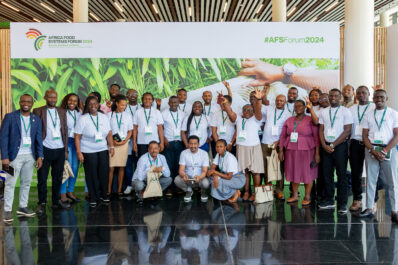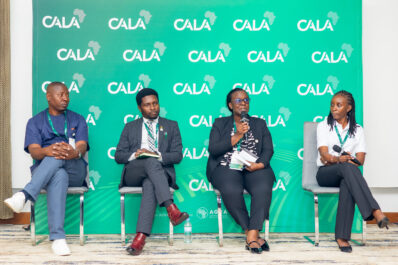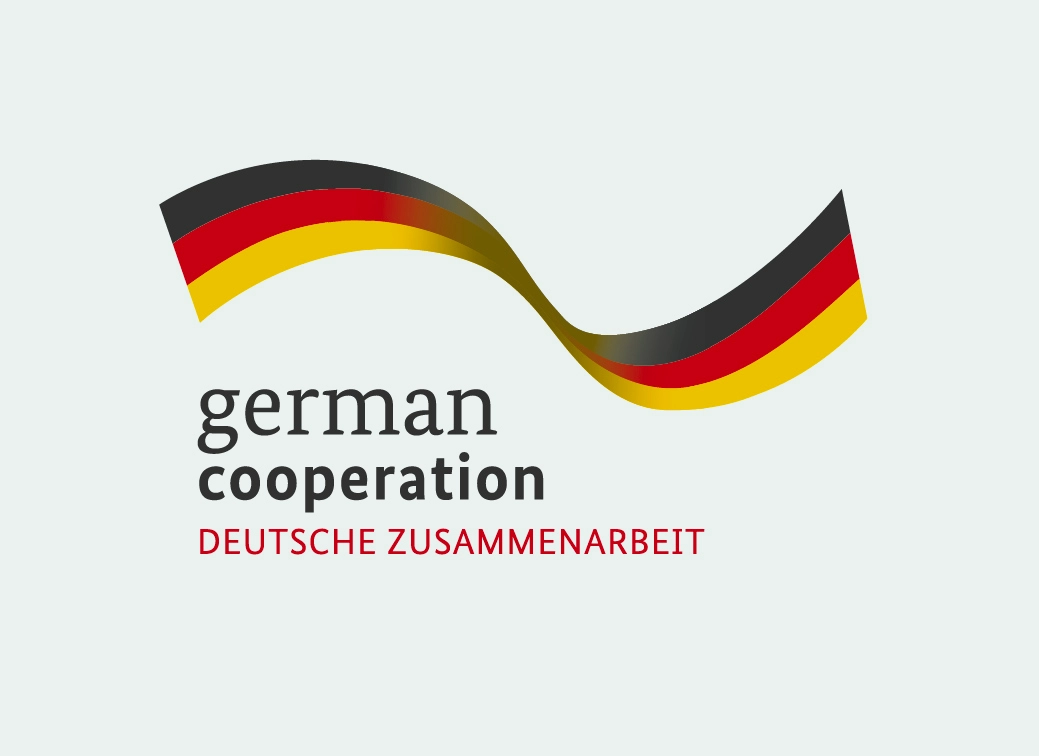Rolling up sleeves and getting hands dirty; how CALA’s action learning projects support leaders to drive Africa’s agricultural transformation
20th January 2022 by African Management Institute

As the saying goes, you can’t plant a seed if you don’t get your hands dirty. Whether it’s planting crops or improving your leadership skills, the idea is the same. To get results, you need to roll up your sleeves and immerse yourself in the action of doing. That is why the Centre for African Leaders In Agriculture (CALA)’s Advanced Leadership Programme is focused on getting leaders in agriculture across the continent to “roll up their sleeves” and work together as part of their learning experience. Ultimately, we believe this approach will help leaders advance national and continental agricultural priorities, now and in the future.
CALA’s inaugural cohort of 80 participants from eight countries in Africa is spending time learning and applying their learning in various ways. These include leadership forums held quarterly, monthly virtual learning labs, monthly team coaching, online courses, exposure to case studies of agriculture transformation, and collaborative Action Learning Projects.
Action learning – “rolling up your sleeves” – is at the heart of the learning methodology of the African Management Institute (AMI), CALA’s lead learning partner. A proven and research-backed approach to improving leadership and management, “action learning” is used across various advanced management learning programmes. AMI’s approach to action learning centers on Action Learning Projects (ALPs). ALPs allow cross-disciplinary teams to design and implement change projects to address real problems, supporting leaders to apply insights gained throughout the rest of the programme and beyond.
Integrated into CALA’s programming, ALPs bring together country cohorts to learn and collaborate through key elements such as problem-solving, implementation and reflection.
As a result, senior leaders and rising stars from government, private sector and civil society, collaborate to design projects that support the delivery of country national agricultural sector strategies and priorities defined under the National Agricultural Investment Plan (NAIP). This ensures that projects can achieve impact and strong results. It also sets the stage for institutional collaborations that have the potential to move forward even after programme completion.
Collaboration as a component of the ALPs is a step in the right direction for several reasons; leaders are able to enhance individual and collaborative leadership skills, gain a deeper understanding of processes across their respective sectors, and capitalise on peer support. This is all underpinned by mutual accountability and ownership of project success.
For the cohort members, the lessons are already taking root. One Kenyan cohort participant credits her now deepened knowledge of government processes to working together with her team. She understood the importance of moving away from too many complex elements, setting realistic timelines and focusing on objectives from her government project members’ contributions.
“We have access to data from our respective institutions, and this has been helpful as we continue to map out our projects,” she states. “Collaborating with the team is teaching me a lot about capitalising on each other’s strengths and building our leadership profiles. We’re now working well together.”
While the Action Learning Projects will continue to support key CALA’s outcomes, such as driving tangible change at the country-level to advance flagship programmes and policies, they are also planting the seed for larger impact across the African continent. They offer a platform for African-owned solutions, and the breadth of issues covered by the projects address a wide set of challenges such as increasing food security, access to local and international markets, product quality, access to resources, gender and youth participation.
Finally, Action Learning Projects are also exploring pertinent challenges such as technology and innovation, enhancing financial inclusion and access for smallholder farmers and other value chain actors in the sector. For many of the inaugural cohort members, the projects are a pathway to defining strategies and processes to support the most dominant group in the sector- smallholder farmers.
With the Action Learning Projects underway in our first cohort, CALA participants are starting to advance Africa’s food security and sustainability in new and different ways. It’s also a great reminder to us all that the best way to learn is by doing whilst working together. And the best way to plant a seed of change, is to roll up our sleeves and get our hands dirty.
Related posts

Equipping Africa’s Public Sector Leaders to Drive Food Systems Change: From the Inside Out
29th July 2025
What does it take to transform Africa’s food systems? It’s not just better policies or

AGRA Announces Open of CALA’s Advanced Leadership Programme Fourth Cohort Applications
15th May 2024
AGRA has announced the opening of applications for the third cohort of the Centre for African Leaders in Agriculture (CALA)’s Advanced Leadership Programme, designed for rising stars(upcoming technical leaders) and established executives from across Africa’s agriculture sector in government, the private sector, and civil society.
The Advanced Leadership programme is the continent’s premier leadership programme, tailored to support developing leaders in advancing agriculture transformation across the continent through the improved capacity to lead the implementation of country agriculture flagship programmes and national agriculture priority programmes.

Alumni Spotlight: Leading the Charge for Sustainable Agriculture in Africa
24th October 2023
“Knowledge empowers leaders. It’s the catalyst for change,” says Peter Juma Lugendo, an alumnus of the Centre for African Leaders in Agriculture (CALA) and the President and Chief Operating Officer at Kickstart. Peter’s journey through agriculture is a testament to what can be achieved when visionary leaders are armed with knowledge and driven by a profound purpose.
Through his training, Peter gained a deeper understanding of collaborative leadership and the art of setting SMART goals. These newfound skills supported his goal to create a nurturing environment at Kickstart, where team members thrive and perform effectively.
The Centre for African Leaders in Agriculture (CALA) is made possible with the friendly support of:

